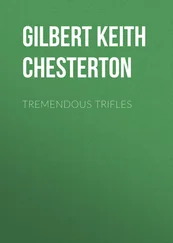Gilbert Chesterton - Manalive
Здесь есть возможность читать онлайн «Gilbert Chesterton - Manalive» весь текст электронной книги совершенно бесплатно (целиком полную версию без сокращений). В некоторых случаях можно слушать аудио, скачать через торрент в формате fb2 и присутствует краткое содержание. Год выпуска: 1912, Издательство: Thomas Nelson and Sons, Жанр: Классическая проза, на английском языке. Описание произведения, (предисловие) а так же отзывы посетителей доступны на портале библиотеки ЛибКат.
- Название:Manalive
- Автор:
- Издательство:Thomas Nelson and Sons
- Жанр:
- Год:1912
- ISBN:нет данных
- Рейтинг книги:3 / 5. Голосов: 1
-
Избранное:Добавить в избранное
- Отзывы:
-
Ваша оценка:
- 60
- 1
- 2
- 3
- 4
- 5
Manalive: краткое содержание, описание и аннотация
Предлагаем к чтению аннотацию, описание, краткое содержание или предисловие (зависит от того, что написал сам автор книги «Manalive»). Если вы не нашли необходимую информацию о книге — напишите в комментариях, мы постараемся отыскать её.
Manalive — читать онлайн бесплатно полную книгу (весь текст) целиком
Ниже представлен текст книги, разбитый по страницам. Система сохранения места последней прочитанной страницы, позволяет с удобством читать онлайн бесплатно книгу «Manalive», без необходимости каждый раз заново искать на чём Вы остановились. Поставьте закладку, и сможете в любой момент перейти на страницу, на которой закончили чтение.
Интервал:
Закладка:
“All this may have driven me mad: I am not sure. I know there is one angle of the road down the pass where the rock leans out a little, and on window nights I seem to hear it clashing overhead with other rocks– yes, city against city and citadel against citadel, far up into the night. It was on such an evening that the strange man struggled up the pass. Broadly speaking, only strange men did struggle up the pass. But I had never seen one like this one before.
“He carried (I cannot conceive why) a long, dilapidated garden rake, all bearded and bedraggled with grasses, so that it looked like the ensign of some old barbarian tribe. His hair, which was as long and rank as the grass, hung down below his huge shoulders; and such clothes as clung about him were rags and tongues of red and yellow, so that he had the air of being dressed like an Indian in feathers or autumn leaves. The rake or pitchfork, or whatever it was, he used sometimes as an alpenstock, sometimes (I was told) as a weapon. I do not know why he should have used it as a weapon, for he had, and afterwards showed me, an excellent six-shooter in his pocket. ‘But THAT,’ he said, ‘I use only for peaceful purposes.’ I have no notion what he meant.
“He sat down on the rough bench outside my inn and drank some wine from the vineyards below, sighing with ecstasy over it like one who had travelled long among alien, cruel things and found at last something that he knew. Then he sat staring rather foolishly at the rude lantern of lead and coloured glass that hangs over my door. It is old, but of no value; my grandmother gave it to me long ago: she was devout, and it happens that the glass is painted with a crude picture of Bethlehem and the Wise Men and the Star. He seemed so mesmerized with the transparent glow of Our Lady’s blue gown and the big gold star behind, that he led me also to look at the thing, which I had not done for fourteen years.
“Then he slowly withdrew his eyes from this and looked out eastward where the road fell away below us. The sunset sky was a vault of rich velvet, fading away into mauve and silver round the edges of the dark mountain ampitheatre; and between us and the ravine below rose up out of the deeps and went up into the heights the straight solitary rock we call Green Finger. Of a queer volcanic colour, and wrinkled all over with what looks undecipherable writing, it hung there like a Babylonian pillar or needle.
“The man silently stretched out his rake in that direction, and before he spoke I knew what he meant. Beyond the great green rock in the purple sky hung a single star.
“‘A star in the east,’ he said in a strange hoarse voice like one of our ancient eagles’. ‘The wise men followed the star and found the house. But if I followed the star, should I find the house?’
“‘It depends perhaps,’ I said, smiling, ‘on whether you are a wise man.’ I refrained from adding that he certainly didn’t look it.
“‘You may judge for yourself,’ he answered. ‘I am a man who left his own house because he could no longer bear to be away from it.’
“‘It certainly sounds paradoxical,’ I said.
“‘I heard my wife and children talking and saw them moving about the room,’ he continued, ‘and all the time I knew they were walking and talking in another house thousands of miles away, under the light of different skies, and beyond the series of the seas. I loved them with a devouring love, because they seemed not only distant but unattainable. Never did human creatures seem so dear and so desirable: but I seemed like a cold ghost; therefore I cast off their dust from my feet for a testimony. Nay, I did more. I spurned the world under my feet so that it swung full circle like a treadmill.’
“‘Do you really mean,’ I cried, ‘that you have come right round the world? Your speech is English, yet you are coming from the west.’
“‘My pilgrimage is not yet accomplished,’ he replied sadly. ‘I have become a pilgrim to cure myself of being an exile.’
“Something in the word ‘pilgrim’ awoke down in the roots of my ruinous experience memories of what my fathers had felt about the world, and of something from whence I came. I looked again at the little pictured lantern at which I had not looked for fourteen years.
“‘My grandmother,’ I said in a low tone, ‘would have said that we were all in exile, and that no earthly house could cure the holy home-sickness that forbids us rest.’
“He was silent a long while, and watched a single eagle drift out beyond the Green Finger into the darkening void.
“Then he said, ‘I think your grandmother was right,’ and stood up leaning on his grassy pole. ‘I think that must be the reason,’ he said–‘the secret of this life of man, so ecstatic and so unappeased. But I think there is more to be said. I think God has given us the love of special places, of a hearth and of a native land, for a good reason.’
“‘I dare say,’ I said. ‘What reason?’
“‘Because otherwise,’ he said, pointing his pole out at the sky and the abyss, ‘we might worship that.’
“‘What do you mean?’ I demanded.
“‘Eternity,’ he said in his harsh voice, ‘the largest of the idols– the mightiest of the rivals of God.’
“‘You mean pantheism and infinity and all that,’ I suggested.
“‘I mean,’ he said with increasing vehemence, ‘that if there be a house for me in heaven it will either have a green lamp-post and a hedge, or something quite as positive and personal as a green lamp-post and a hedge. I mean that God bade me love one spot and serve it, and do all things however wild in praise of it, so that this one spot might be a witness against all the infinities and the sophistries, that Paradise is somewhere and not anywhere, is something and not anything. And I would not be so very much surprised if the house in heaven had a real green lamp-post after all.’
“With which he shouldered his pole and went striding down the perilous paths below, and left me alone with the eagles. But since he went a fever of homelessness will often shake me. I am troubled by rainy meadows and mud cabins that I have never seen; and I wonder whether America will endure.– Yours faithfully, Louis Hara.”
After a short silence Inglewood said: “And, finally, we desire to put in as evidence the following document:–
“This is to say that I am Ruth Davis, and have been housemaid to Mrs. I. Smith at ‘The Laurels’ in Croydon for the last six months. When I came the lady was alone, with two children; she was not a widow, but her husband was away. She was left with plenty of money and did not seem disturbed about him, though she often hoped he would be back soon. She said he was rather eccentric and a little change did him good. One evening last week I was bringing the tea-things out on to the lawn when I nearly dropped them. The end of a long rake was suddenly stuck over the hedge, and planted like a jumping-pole; and over the hedge, just like a monkey on a stick, came a huge, horrible man, all hairy and ragged like Robinson Crusoe. I screamed out, but my mistress didn’t even get out of her chair, but smiled and said he wanted shaving. Then he sat down quite calmly at the garden table and took a cup of tea, and then I realized that this must be Mr. Smith himself. He has stopped here ever since and does not really give much trouble, though I sometimes fancy he is a little weak in his head.
“Ruth Davis.”“P.S.–I forgot to say that he looked round at the garden and said, very loud and strong: ‘Oh, what a lovely place you’ve got;’ just as if he’d never seen it before.”
The room had been growing dark and drowsy; the afternoon sun sent one heavy shaft of powdered gold across it, which fell with an intangible solemnity upon the empty seat of Mary Gray, for the younger women had left the court before the more recent of the investigations. Mrs. Duke was still asleep, and Innocent Smith, looking like a large hunchback in the twilight, was bending closer and closer to his paper toys. But the five men really engaged in the controversy, and concerned not to convince the tribunal but to convince each other, still sat round the table like the Committee of Public Safety.
Читать дальшеИнтервал:
Закладка:
Похожие книги на «Manalive»
Представляем Вашему вниманию похожие книги на «Manalive» списком для выбора. Мы отобрали схожую по названию и смыслу литературу в надежде предоставить читателям больше вариантов отыскать новые, интересные, ещё непрочитанные произведения.
Обсуждение, отзывы о книге «Manalive» и просто собственные мнения читателей. Оставьте ваши комментарии, напишите, что Вы думаете о произведении, его смысле или главных героях. Укажите что конкретно понравилось, а что нет, и почему Вы так считаете.









